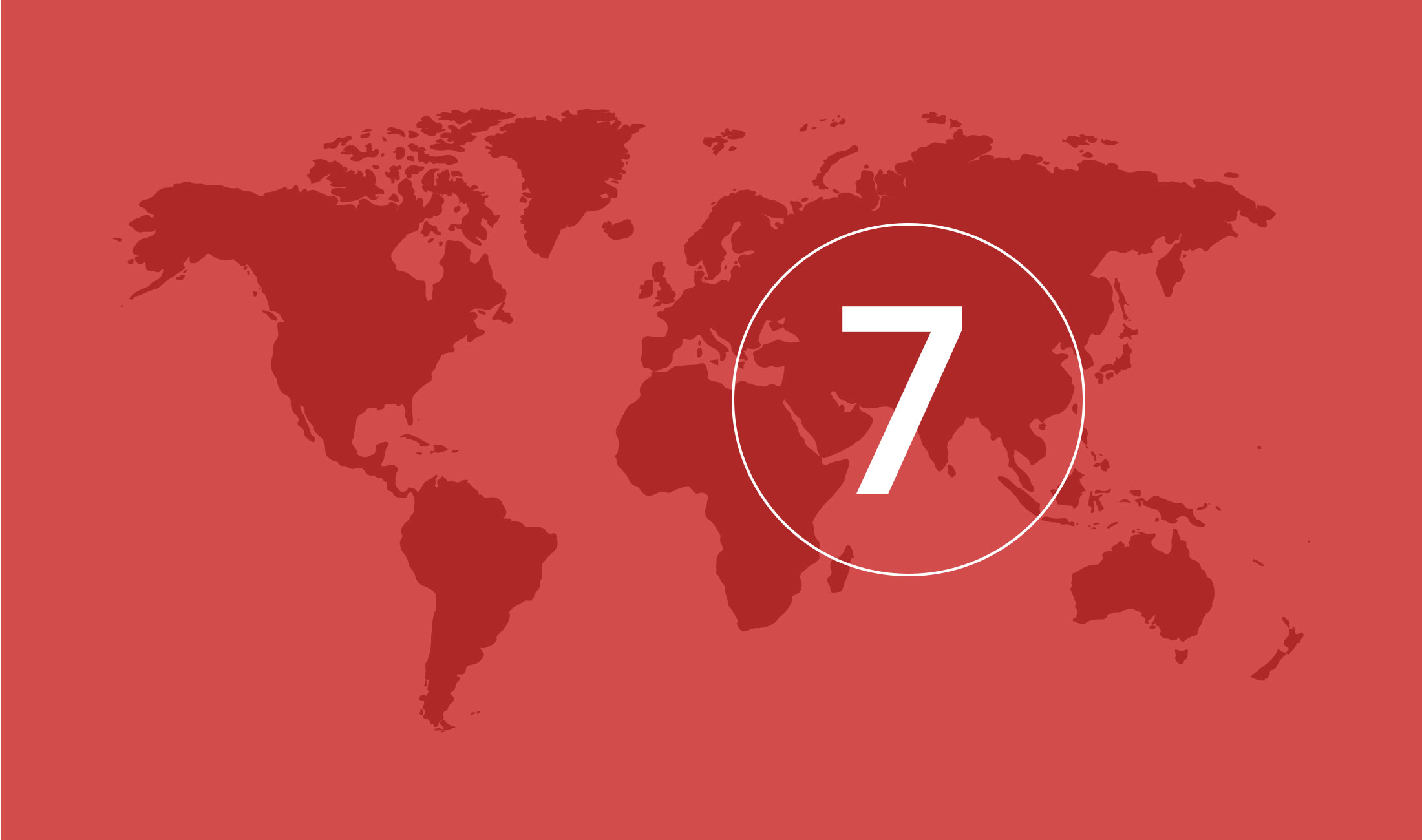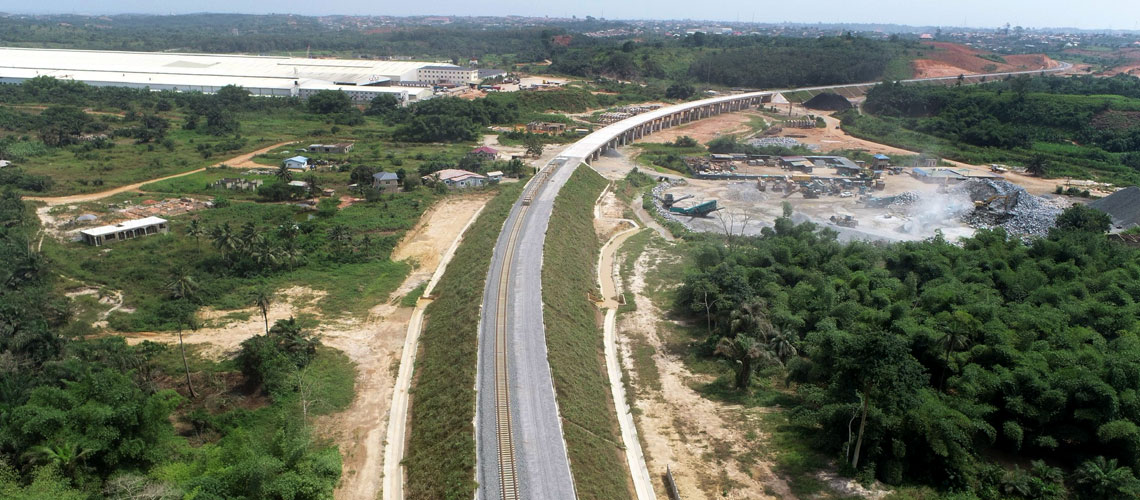
Ghana
Category
7 of 7
| Risk type | Short | Long |
|---|---|---|
| Sovereign | ||
| Public | ||
| Bank | ||
| Corporate |
The icons indicate EKN's risk assessment.
A lower country risk category means a lower country risk. The icons mark EKN's ability to cover risks to different buyers in the country.
-
No policy established
- EKN has not analysed this country recently and therefore has no current opinion. If an exporter submits an application for such a country, EKN performs an analysis of the country at short notice and determines a policy.
-
Normal risk assessment
- EKN decides on guarantee issue based on an assessment of risk in the transaction. There are no predefined restrictions in the risk assessment or assumptions for risk assessment.
-
Restrictive risk assessment
- EKN sets stricter requirements in the risk assessment in order to guarantee a transaction. EKN may have specified special criteria that are key to the risk assessment of the guarantee holder category in question. This may mean that EKN sets a requirement that the counter party must have its own hard currency earnings or that external support can be expected, or that EKN sets a requirement for a letter of credit, government or bank guarantee. If the formulation of the transaction deviates from a defined restriction, we normally set more stringent conditions and may in the worst case refuse to guarantee the transaction. More stringent conditions may be that we reduce the sum guaranteed, raise the premium or require some form of security.
-
Normally off cover
- Here EKN does not normally cover currency transfer risks. However in some circumstances EKN may be able to go further with high risk countries than the restrictions of the country policy indicate. The application is then tested under the so-called GSL facility, which refers to guarantee issue with special country evaluation. There are specific requirements for this, primarily that the exporter has experience of the market in question. The risk is then shared with the exporter and by means of a mark-up on the premium.
-
OECD or EU countries
- Because of EU rules, EKN cannot issue guarantees for transactions with a risk period of less than two years for exports to Australia, EU countries, Iceland, Japan, Canada, Norway, New Zealand, Switzerland or the USA. If you have any questions, please telephone us on +46 8-788 00 00.
Country risk analysis
Country Risk Analysis of Ghana
The latest Country Risk Analysis of Ghana was issued in October 2025.
Background
Over the past decade, Ghana’s GDP has grown by an average of around five per cent per year. Agriculture accounts for a significant share of the economy, but exports are dominated by gold (50 per cent), oil (20 per cent) and cocoa (10 per cent). Overall, the economy is relatively dynamic, and in combination with comparatively strong institutions, this constitutes one of the country’s key strengths.
Although Ghana’s institutions and freedom of expression have weakened somewhat over the past decade, the risk of the country being swept up in the wave of anti-democratic developments across West Africa is considered low. Since 1992, Ghana has held regular peaceful transfers of power, and incidents of violence surrounding elections are rare. In the World Bank’s Worldwide Governance Indicators, the country’s economic institutions rank around the middle of the global distribution.
Among Ghana’s weaknesses are its public finances. Low revenues combined with high spending have led to recurring fiscal deficits, unsustainable debt accumulation and repeated IMF programmes. The country’s historically weak fiscal discipline means that the current IMF arrangement is the eighteenth since independence in 1957. Both the ruling NPP and the opposition NDC have, during their respective periods in office, been responsible for mismanagement of public finances.
Ghana benefited from large debt cancellations in the early 2000s under the Heavily Indebted Poor Countries (HIPC) Initiative. Deteriorating public finances prompted EKN to downgrade Ghana to country risk category 7 in June 2022 and to close for new sovereign transactions in September of the same year.
The oil and gas industry is important for maintaining high growth, implying certain transition risks – particularly since Ghana is a high-cost producer of both oil and gas. Low income levels and the large agricultural sector also make the country vulnerable to climate-related risks, especially flooding and storms.
Industrial activity and urban development are largely concentrated in coastal areas, while the important cocoa industry is highly sensitive to drought. In the ND-GAIN Index (2023), which measures countries’ vulnerability to climate change and their adaptive capacity, Ghana ranked 111th out of 187 countries.
Gold driving the economic turnaround
As in several other African economies, high gold prices have played a decisive role for Ghana during the crises of recent years. In 2024, gold exports accounted for 55 per cent of total exports, according to Statistics Ghana, helping the economy regain momentum. Between 2026 and 2027, growth is expected to reach close to five per cent per year. While this is lower than in the years preceding the pandemic, it is considerably higher than the average of the past five years.
A clearly positive trend in cement sales, container traffic, private sector credit, and vehicle registrations during 2025 confirms the picture of growing economic activity across virtually all sectors. Fiscal tightening under the IMF programme will act as a constraint in the years ahead.
Lower global growth following the rise in US trade tariffs is also expected to have a cooling effect, although the direct impact on Ghana’s economy will be limited.
The country currently faces 15 per cent tariffs, but only around five per cent of its exports go to the United States – mainly oil, which is exempt from the tariffs. Another sign of improving economic health is the marked decline in inflation. According to the Bank of Ghana, inflation has fallen to just under 12 per cent, down from over 20 per cent a year earlier. Inflation is thus moving closer to the Bank of Ghana’s target of 8 per cent (±2 percentage points).
High gold production and favourable gold prices have also played a key role in rebuilding the country’s foreign exchange reserves. Gold has been used both to reduce hard currency outflows for oil imports under the government’s Oil for Gold programme and to expand the central bank’s holdings. Through active purchases, the Bank of Ghana has more than tripled its gold reserves – from just under ten tonnes in May 2023 to 36 tonnes in August 2025. According to the IMF, foreign reserves now cover 3.3 months of imports, compared with just over one month in December 2022, when EKN introduced elevated premiums for banks and corporates. Improved growth prospects, falling inflation and rising reserves have led EKN to ease its country policy for Ghana, returning to normal risk assessment for banks and corporates.
Ghana’s democratic tradition was maintained in the presidential election of December 2024, which saw John Mahama (NDC) elected president. The election proceeded largely peacefully, and both domestic and international observers deemed it free and fair. Political stability and democratic tradition therefore remain among Ghana’s key strengths in an otherwise politically turbulent West African region. These are essential prerequisites for the continued recovery of Ghana’s economy and for restoring the confidence of creditors and investors.
On the fiscal side, debt indicators are now improving. Restructuring and fiscal consolidation mean that public debt is expected to fall to 66 per cent of GDP in 2025. The budget deficit stands below three per cent, and the primary balance is slightly positive. During the year, the cedi has strengthened by 20 per cent against the US dollar, which has also contributed to improved debt ratios.
However, public debt still amounts to just over 400 per cent of government revenues, and more than a quarter of the state budget goes to interest payments – one of the fundamental challenges in Ghana’s public finances. The IMF assesses that Ghana’s debt will be sustainable following the ongoing restructuring and IMF programme, though the risk of payment difficulties remains high. Only in 2028 is Ghana expected to return to a medium level of debt distress, provided that the IMF programme is fully implemented, fiscal discipline is maintained, and no major external shocks occur.
Fiscal discipline remains the key issue going forward, given Ghana’s long history of recurrent fiscal problems. Toward the end of 2024, the government again engaged in pre-election overspending, resulting in higher inflation and the accumulation of arrears. Since taking office, President Mahama’s administration has presented a tight budget, legally challenged certain arrears, strengthened the fiscal framework, and initiated tax reforms. It is a positive start, though challenges remain significant.
Persistently high poverty and the loss of real incomes during years of elevated inflation represent a major challenge for the government, which will need to carefully balance budget discipline against pressing needs for investment in social sectors and infrastructure. Instability in the energy and banking sectors also continues to pose fiscal risks. Only after the completion of the IMF programme in 2026 will EKN gain an indication of whether Ghana will be able to resume payments on the loans guaranteed by EKN.
Business environment
High growth, political stability, a relatively open economy and comparatively strong institutions provide the basic conditions for a favourable business environment. In terms of corruption, Ghana ranks at a medium level in the Worldwide Governance Indicators, i.e. significantly better than the regional average. A contributing factor is the comparatively free and scrutinising media landscape. EKN’s experience is that, for example, repossession of equipment through the legal system works reasonably well, even though there are clear shortcomings in the country’s bureaucracy and judicial system.
During the crises of recent years, however, the business environment has weakened markedly. The risk of delayed payments from public debtors is elevated. EKN has, for instance, experienced delays related to Cocobod and to buyers whose customer is the state.
Hard-currency shortages are a recurring problem, particularly in EUR. Thanks to improved hard-currency liquidity in 2024/2025, the Bank of Ghana has reverted to a system in which foreign currency is sold via transparent auctions. The shift to auctions is generally positive, but for some of EKN’s buyers the transition has at least temporarily led to longer lead times to secure foreign currency. Until the system fully beds in – and for certain buyers – it may therefore currently be more difficult than normal to secure foreign currency.
In EKN’s business assessment, the risk of negative impacts on human rights (HR) is taken into account. EKN’s focus is on potential impacts from the activities in the countries where the exported goods will be used.
In this context, issues such as working conditions, child and forced labour, excessive use of force by security personnel, indigenous rights and land rights are of particular importance. In Maplecroft’s HR index for these dimensions, Ghana shows a significantly higher risk profile across all these indicators compared with the group of OECD high-income countries. The gap is particularly large regarding the risks of forced labour, child labour, and occupational health and safety. Even compared with countries at a similar income level, Ghana scores somewhat higher on forced labour and child labour.
EKN’s policy
Country risk category 7 is maintained. Since September 2022, EKN has been closed for direct sovereign risks. For such transactions, a letter of credit or a bank guarantee is required. Normal risk assessment now applies to bank and corporate risks.
EKN’s commitment and experience
Sovereign risks of SEK 4.2 billion (after reinsurance) constitute the bulk of EKN’s exposure. All of these transactions will be included in the Paris Club agreement between Sweden and Ghana. EKN currently has delays amounting to just over SEK 70 million on the state, and SEK 500 million has been paid out in indemnities to date. EKN also has a receivable of SEK 15 million from another public counterparty that is not covered by the debt agreement.
On the private side, EKN undertakes 20–30 transactions per year, mainly in the mining and transport sectors. Payment experience has deteriorated during the economic crisis, particularly in the paper industry. EKN has delays of just over SEK 60 million with one buyer in the paper industry, and receivables of just over SEK 5 million with two other buyers. The remaining private receivables consist mainly of older transactions in the mining and transport sectors.
Learn more about exporting to Ghana

- Sustainability
- Financing
“Water is life”
A water treatment project in Ghana provides 400,000 with clean drinking water and reduces the need to walk long distances to fetch water. “EKN and SEK were important to help structure a competitive financing structure”, says Desislava Radeva at Standard Chartered Bank.
“Water is life”
- Sustainability
- Financing
Fast track to growth in Ghana
In Ghana, EKN-backed financing enables the biggest railway investment since independence. The project will boost exports, create new jobs and add to sustainability by shifting cargo from road to rail.
Fast track to growth in Ghana
- Sustainability
- Bank
- Financing
Paving the way for progress
Cocoa, gold and oil, coupled with political stability, has placed Ghana in the top tier of African economies, but the quality of the infrastructure hasn’t quite kept up. That’s about to change.
Paving the way for progressMore for companies that want to export to Ghana

EKN's guarantees
EKN's guarantees reduce the risk of payment defaults and help banks support businesses. Which guarantee suits your needs?
EKN's guarantees
Guarantee guide
Are you unsure which guarantee is the best fit for your specific transaction? Try our guarantee guide.
Guarantee guide